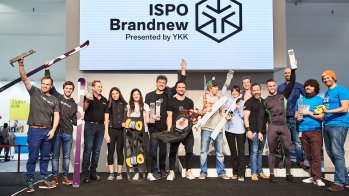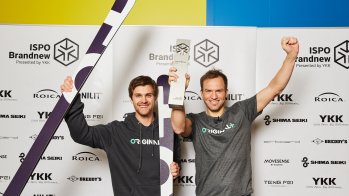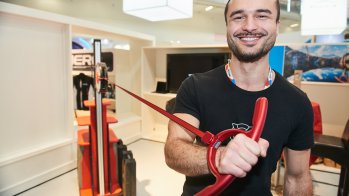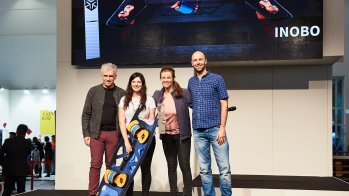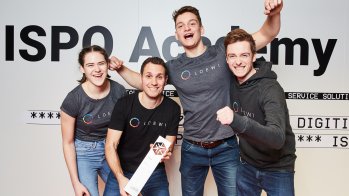
The cooperation between start-ups and medium-sized companies is based on mutual give and take. Both have already gained a great deal of experience. Medium-sized companies are usually established and organically grown companies that have experience in bookkeeping, accounting or dealing with numerous employees. "Even when it comes to establishing their own positioning in the market, the wealth of experience of medium-sized companies is worth its weight in gold for young start-ups," says Mario Ohoven, President of the German Association of Small and Medium-Sized Businesses (BVMW).
"Start-ups, on the other hand, provide the experienced entrepreneur with a valuable view from the outside of the sometimes deadlocked structures in their own company. They also learn how customer needs can be satisfied faster, more flexibly and in a more modern way, and how new technologies can be used sensibly. This also applies when recruiting young skilled workers."
Experienced companies therefore know how a business process has to run, while the start-up knows new ways to optimize this process. This creates fruitful synergies that help both sides adapt products and services to the challenges of digitization.
Some large companies have already understood this. For example, according to a study by the Federation of German Industries, Deutsche Bank and the Institute for SME Research, half of the largest family businesses in Germany already cooperate with startups. But around two-thirds of SMEs are not (yet) working with founders, according to a survey by the IT association Bitkom.
Ministries or banks offer various programs for cooperation between companies. The Digital Hub Initiative of the German Federal Ministry for Economic Affairs and Energy, for example, aims to network companies and startups in twelve regions. But that's not enough for the BVMW. Such programs are often one-sided, Ohoven said. "As an association, we have therefore made it our goal to facilitate networking at eye level. In addition to Junger Mittelstand - a successful platform that brings together innovative young entrepreneurs and established SMEs - we have, among other things, established the format Start-up meets Mittelstand. Together with partners, we hold events in various regions," says Ohoven.
The ANWR Group, parent company of the Sport 2000 dealer network, has also joined Start-ups meets Mittelstand. Since September 2018, the company has been a partner of the Retailtech Hub innovation platform, which brings together retailers, brands and selected start-ups to test and pilot new technologies and digital business models.
Gregor F. Bernhart, Director Corporate Development of ANWR Group: "The special attraction of the Retailtech Hub for us is that we can identify and test innovative products and services at an early stage on an international level. These 'early stage pilot phases' allow us to offer innovative products to our retailers more quickly.
It also enables us to further expand our position as an innovation driver in the environment of stationary specialty retailers. For our Group, this partnership is a more than consistent step in line with the Group's 'Inspiring Retail' strategy."
In the Bundesliga, too, a number of clubs see crucial future opportunities in the exchange with the start-up scene. At the forefront are 1. FC Köln, VfL Wolfsburg and Eintracht Frankfurt. All three clubs have launched so-called accelerator programs. These represent a win-win situation: The business youngsters need experienced financiers and supporters when they start up, and the soccer clubs need innovative technologies, e.g. in the areas of training control, match analysis or fan and stadium experience..
Axel Hellmann, CEO of Eintracht Frankfurt Fußball AG, comments: "As in all areas of life, digitization has become an integral part of sports. As a medium-sized company in the region, the dialog with start-ups in the context of the cooperation with the Techquartier offers us opportunities for our own corporate development. At the same time, we support founders in implementing interesting business ideas and thus make the location attractive for start-ups. This is all part of our corporate goal of becoming the most digital Bundesliga club."
ISPO Brandnew 2019: The Winners in Pictures
It sounds similar at 1. FC Köln. There, they are committed to the further development of the sports market and, among other things, have recently joined forces with the Hype Sports Innovation platform, which connects and invests in sports innovations worldwide.
"We are excited to join forces with Hype Foundation to support the next generation of sports startups," said FC CEO Alexander Wehrle, explaining the decision. "We will contribute our expertise to support ideas that can benefit us as a club and the sports industry as a whole. And we want to learn as much as possible from the creative entrepreneurs who are thinking about the future of sports."
Classically, a cooperation can start with a sales partnership. "Via the mutual transfer of knowledge, it then develops into a financial arrangement. It is becoming increasingly common for medium-sized companies to invest in start-ups. It is also not uncommon for startups to work as service providers for medium-sized companies. This is particularly the case in industries with a focus on high-tech," explains BVMW President Ohoven.
The Swiss company Intersport, for example, entrusts part of its customer service to the newcomer Guuru. With innovative technologies, the start-up as a service provider ensures that loyal customers (so-called Guurus) can take over the consulting of Intersport online customers. An algorithm finds the right Guuru for every customer question within seconds. This example shows how young companies can support established companies with their know-how in new technologies in order to satisfy customer needs faster, more flexibly and more modernly.
When a traditional entrepreneur and the founder of a start-up want to agree on a cooperation, two worlds often collide. "Many young companies pursue the goal of the quickest possible exit, i.e., a sale of the company, while medium-sized companies think in terms of generations," reports Ohoven. Particularly in the early days, startups struggled with low reputation and difficult financial conditions.
"Established SMEs, on the other hand, have difficulty adjusting to the mostly disruptive businesses. Here, both sides have to show understanding and respect for each other and try to reconcile the different business philosophies," Ohoven continued. It is an appeal to think of the future.
You can gather further know-how for your future in the sports business, for example, at the ISPO Digitze Summit. In workshops, key notes and expert discussions, you will learn the most important facts and trends.
Classically, a cooperation can start with a sales partnership. "Through the mutual transfer of knowledge, it then develops into a financial arrangement. It is becoming increasingly common for medium-sized companies to invest in start-ups. It is also not uncommon for start-ups to work as service providers for medium-sized companies. This is particularly the case in industries with a focus on high-tech," explained BVMW President Ohoven.
The Swiss company Intersport, for example, entrusts part of its customer service to the newcomer Guuru. As a service provider, the start-up company uses innovative technologies to ensure that loyal customers (so-called Guurus) can take over the consulting of Intersport online customers. An algorithm finds the right Guuru for every customer question within seconds. This example shows how young companies with their know-how in new technologies can support established companies to satisfy customer needs faster, more flexibly and more modernly.
When a traditional entrepreneur and the founder of a start-up want to agree on a cooperation, two worlds often collide. "Many young companies pursue the goal of an exit as quickly as possible, i.e. a company sale, while medium-sized companies think in terms of generations," reported Ohoven. Particularly in the early days, start-ups struggled with a low reputation and difficult financial conditions.
"The established medium-sized companies, on the other hand, have difficulties adapting to the mostly disruptive business environment. Here both sides must show understanding and respect for each other and try to reconcile the different corporate philosophies," Ohoven continued. It's an appeal to think about the future.
You can gather further know-how for your future in the sports business, for example, at the ISPO Digitze Summit. In workshops, key notes and expert discussions, you will get to know the most important facts and trends.
 Sports BusinessThe future of the bike industry: 6 innovative bike stores
Sports BusinessThe future of the bike industry: 6 innovative bike stores
- ISPO awards
- Mountain sports
- Bike
- Design
- Retail
- Fitness
- Health
- ISPO Job Market
- ISPO Munich
- ISPO Shanghai
- Running
- Brands
- Sustainability
- Olympia
- OutDoor
- Promotion
- Sports Business
- ISPO Textrends
- Triathlon
- Water sports
- Winter sports
- eSports
- SportsTech
- OutDoor by ISPO
- Heroes
- Transformation
- Sport Fashion
- Urban Culture
- Challenges of a CEO
- Trade fairs
- Sports
- Find the Balance
- Product reviews
- Newsletter Exclusive Area
- Magazine
